Policies, education and mobilization
Despite the enormity of the challenge, evidence and experience strongly suggest that substance use problems can be reduced. Such efforts require the political will to tackle the problems and a smart mix of government policies, education activities, and mobilization of communities and NGOs. Particular attention should focus on implementing evidenced-based strategies, which necessarily include interventions to reduce the availability and the affordability of alcohol and illicit drugs.
Alcohol policy training in Malawi and Botswana
Malawi and Botswana became the two first countries to test a new training package on evidence-based alcohol policies. Namibia will be the next country early in 2010.
Drinks industry supplanting government role in Sub-Saharan Africa
The multinational drinks industry has made attempts to take control over alcohol policy formulation in a number of African countries.
Draft Global Alcohol Strategy goes to WHO Executive Board
The Executive Board of the World Health Organization will discuss a Draft Global Strategy to Reduce Harmful use of Alcohol in its January 2010 meeting. The documents, including the draft strategy are now available.
Diyanath Samarasinghe:
UNRECORDED ALCOHOL
This paper by Professor Diyanath Samarasinghe at the University of Colombo, Sri Lanka, gives an introduction to how the problem of unrecorded alcohol consumption can be understood and how it can be addressed; by communities, governments and NGOs.
Diyanath Samarasinghe:
REDUCING ALCOHOL HARM: things we can do
Three papers by professor Diyanath Samarasinghe explore various aspect of alcohol in a development setting. This booklet is for someone who is interested in learning how to make even his smallest action count.
Eastern Africa Alcohol Policy Alliance established in Arusha
Representatives from non-governmental organizations from five countries, together with alcohol experts and resources persons, have now formed a network for alcohol policy advocacy work in Eastern Africa.
Contributions to WHO strategy process are now published
Input from NGOs, alcohol industry and other institutions to the WHO process towards a Global Strategy are now available at the WHO web site.
Conference on the prevention of alcohol-related harm in East Africa
Arusha, Tanzania: East African conference with a strong appeal for evidence-based alcohol policies in the region.
Professor Thomas Babor: Effective and Evidence-base Interventions to reduce Alcohol-related Harm
A video presentation of the WHO sponsored report Alcohol: No Ordinary Commodity by Professor Thomas Babor can be studied here.
Substance use in conflict and disaster situations
The UN High Commissioner on Refugees and the World Health Organization have produced a field guide for how to address alcohol and drug problems in populations affected by disaster or conflict.(Photo: UNHCR/B.Bannon)
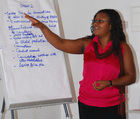
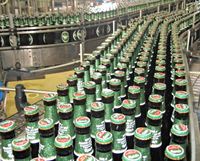
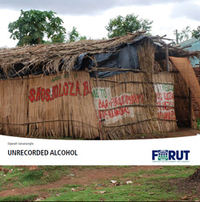
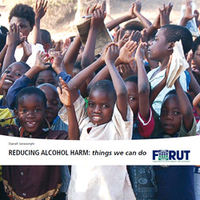

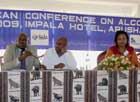
![Professor Thomas Babor Sri L 2006[1]](https://img4.custompublish.com/getfile.php/840719.994.fuuecydcac/200x0/0_840719.jpg)

